
You've heard the stat - the average net worth of millennials is roughly $18,000. Older millennials are doing much better, but they're also approaching 40. Younger millennials typically have a negative net worth, and may be struggling to launch with the pandemic.
With these stats in mind, we wanted to see how much support millennials are still receiving from their parents - given that most are 24-40 years old these days. And beyond the dollar amount, in what areas are millennials getting the most help in?
We surveyed 1,500 millennials to find out how many are receiving help from their parents, and for those that are, what areas are they getting the most financial support in. Here's what we found out.
Key Findings
We asked millennials to share how much financial support (if any) they're receiving from their parents, and in what areas they're receiving the most help. Here's what we discovered.
- Overall, 64% of millennials surveyed said they were still receiving financial support from their parents.
- 34% of millennials surveyed said they are still living at home with their parents. However, of those living at home, 52% of them said they had to move home specifically due to Covid-19.
- 58% of those who receive financial support from their parents say they are receiving more this year than prior years due to Covid-19.
- Of millennials receiving support, 54% said the value was $500 or less each month.
- Of millennials receiving financial support for their parents, 74% say it enables them to save more money personally each month.
So, how are parents supporting their millennial children financially? Here's what we found (remember, this is only from those receiving support):
- 56% said their parents were helping them with food or groceries
- 49% said their parents were helping pay for cell phone bills or other utilities
- 39% said they were receiving support for housing
- 32% said they were receiving support for transportation
- 32% said they were receiving help to pay for insurance
- Only 26% said they were receiving support to pay back student loan debt
Overview Of Millennial Support From Parents
Let's take a look at some of the results more in-depth.
Overall, 64% of millennials we surveyed said they were still receiving financial support from their parents.
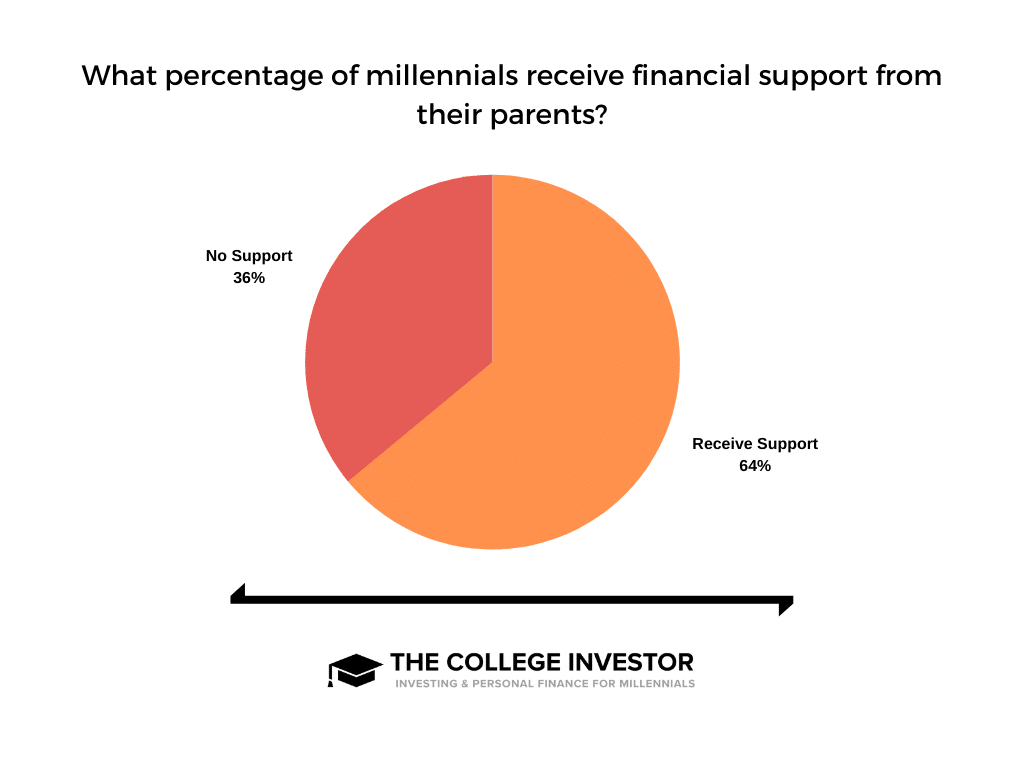
When we asked how much millennials would estimate their parents support them (as a dollar value), most millennials (30% of those who receive support) answered that their parents' provide anywhere from $100 to $500 in support per month. 24% said they receive up to $100 per month.
18% said they receive anywhere from $500 to $1,000. 7% said they receive $5,000 or more per month from their parents.
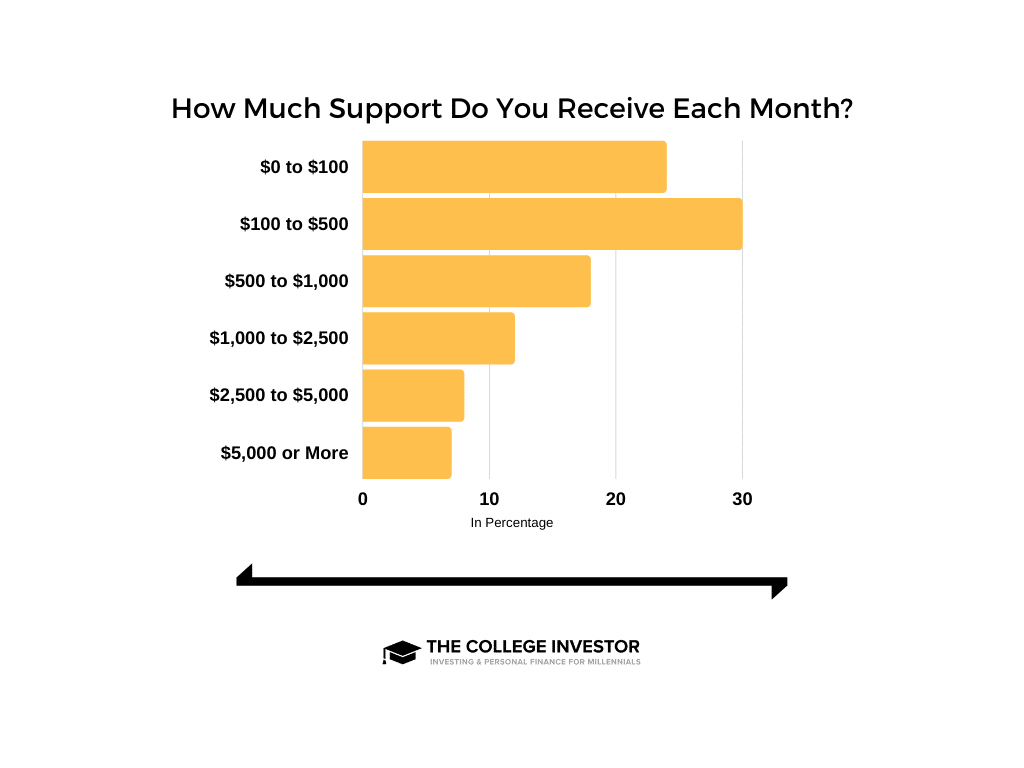
When it came to what categories millennials receive financial support, the most common response was food or groceries. 56% said their parents were helping them with food or groceries, while 49% said their parents were helping pay for cell phone bills or other utilities.
Only 26% said they were receiving support to pay back student loan debt.
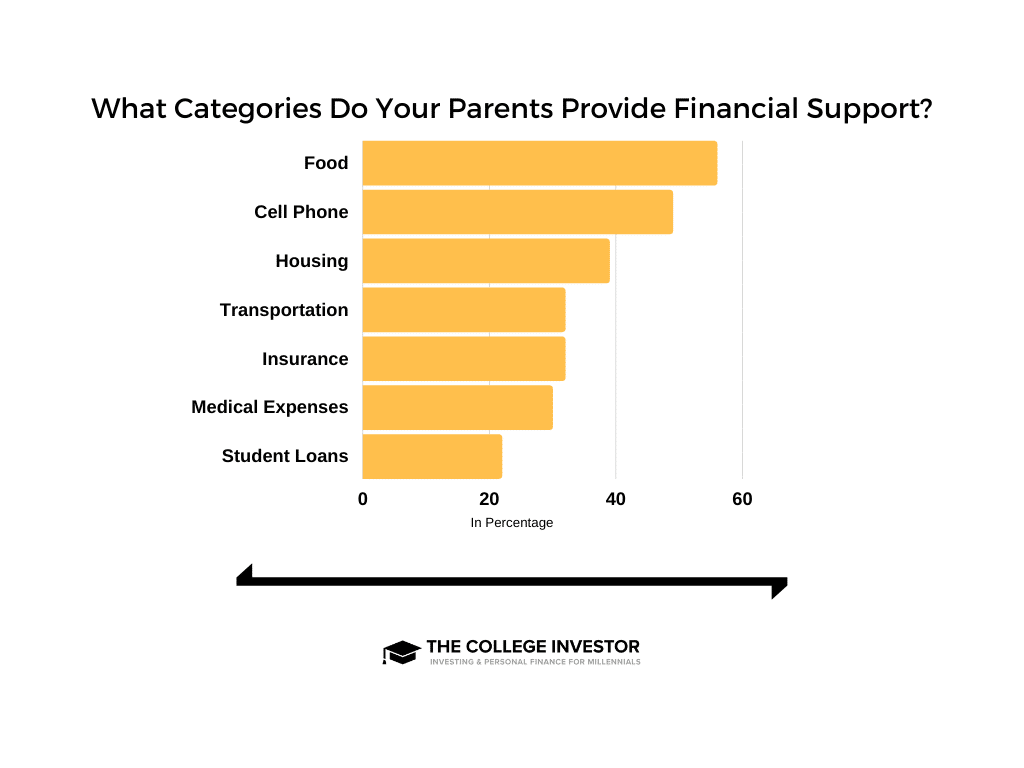
Finally, we thought it was important to assess how Covid-19 may have impacted millennials. And it clearly did - 58% of those surveyed who received support from their parents needed more during the pandemic than the prior year.
Surprisingly, it wasn't the youngest millennials that needed the most help. The group that reported the most increase in support was 30-34 year olds, with 61% reporting more support from parents.
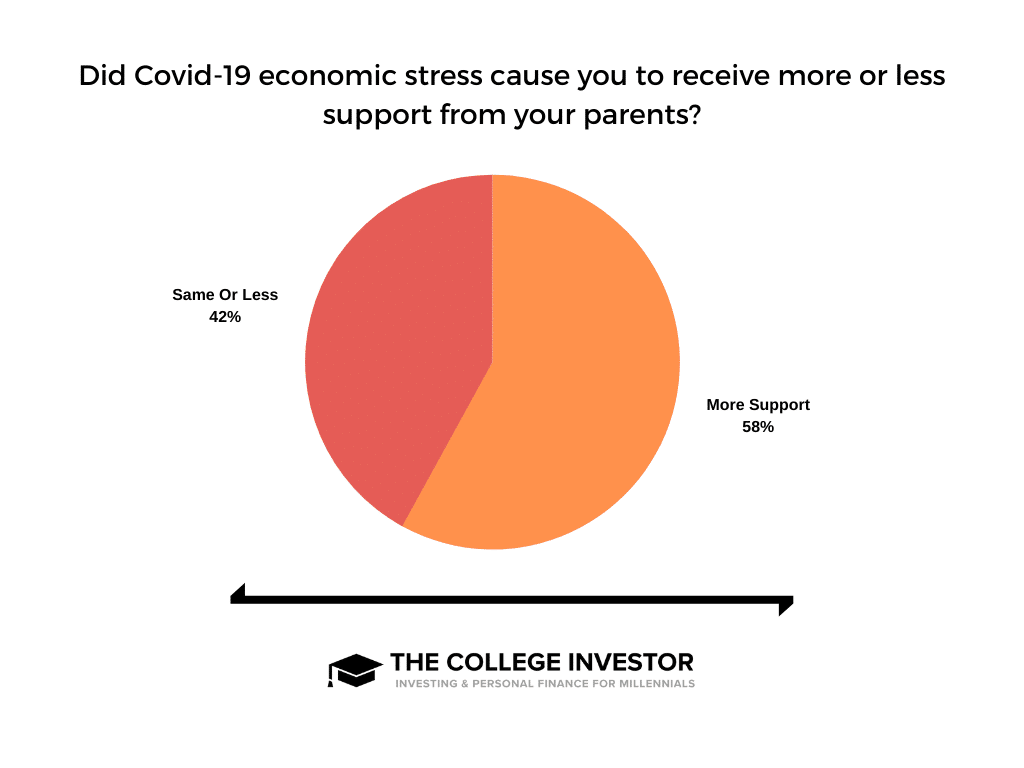
Housing Support From Parents
Here's how millennials are getting housing support from parents. The first question we asked was how many millennials who responded to our survey were living at home with their parents.
Overall, 34% of millennials are living with their parents, and 53% of those receiving support are living at home with their parents.
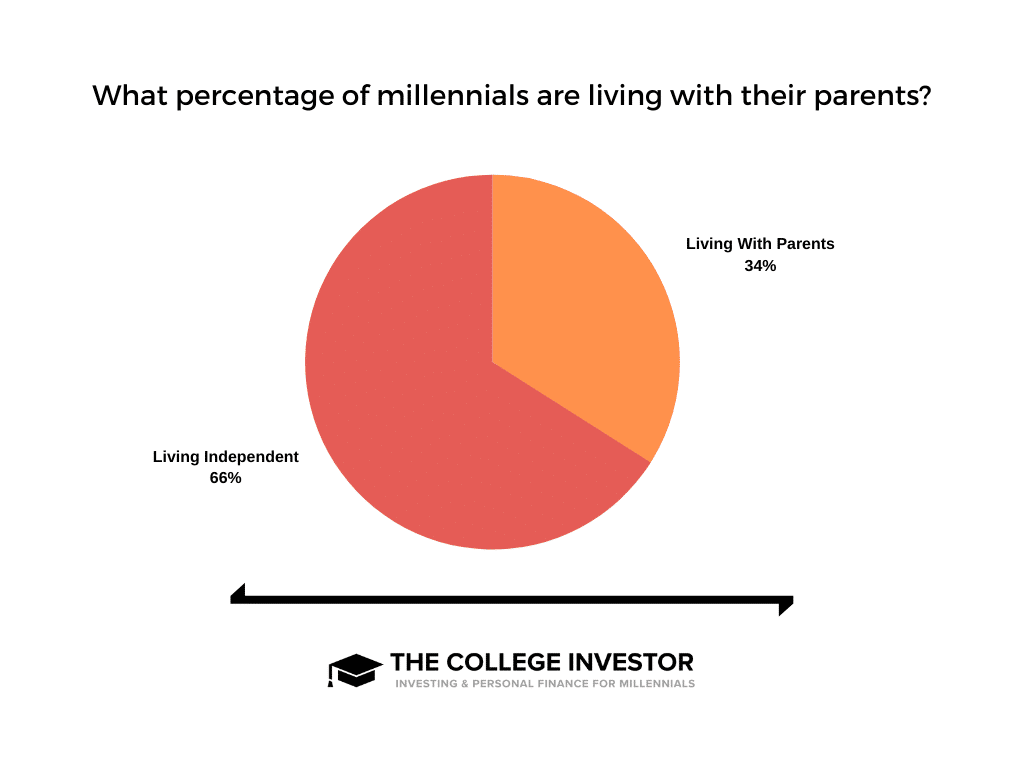
Covid-19 played a role in this figure. Our survey found that 52% of millennials who are living at home today do so specifically because of Covid-19.
Outside of living at home, we found that 13% of millennials are receiving financial support from their parents for housing - "paying their rent". And 8% of all millennials are having their parents pay upwards of 50% of their monthly housing expenses.
Specifically focusing on those who do live at home, 32% do pay their parents some level of rent. 43% say that living at home requires them to do chores or help around the house.
The Benefits Of Support
Millennials are claiming some benefits of the support they're receiving from their parents. Of millennials who are receiving support from their parents, 74% say it's allowing them to save more money as a result.

Final Thoughts
Millennials run a huge age range - from recent college graduate to approaching 40. As such, it's expected to see a variety of support levels from parents across the generation. It is interesting to see that almost two-thirds of millennials are still receiving support from their parents, with almost one-third still living at home.
Our study seems to align very close to current Census Bureau data, which says 34.1% of millennials are living at home.
With that said, with benefits ending, student loan repayments restarting, and the employment levels mixed, it will be interesting to see how parental support of millennials changes in the future.
Methodology
The College Investor commissioned Pollfish to conduct an online survey of 1,577 American millennials. The survey was fielded May 25-26, 2021.
Millennials are defined as individuals from ages 23 to 39 in 2021.

Robert Farrington is America’s Millennial Money Expert® and America’s Student Loan Debt Expert™, and the founder of The College Investor, a personal finance site dedicated to helping millennials escape student loan debt to start investing and building wealth for the future. You can learn more about him on the About Page or on his personal site RobertFarrington.com.
He regularly writes about investing, student loan debt, and general personal finance topics geared toward anyone wanting to earn more, get out of debt, and start building wealth for the future.
He has been quoted in major publications, including the New York Times, Wall Street Journal, Washington Post, ABC, NBC, Today, and more. He is also a regular contributor to Forbes.
